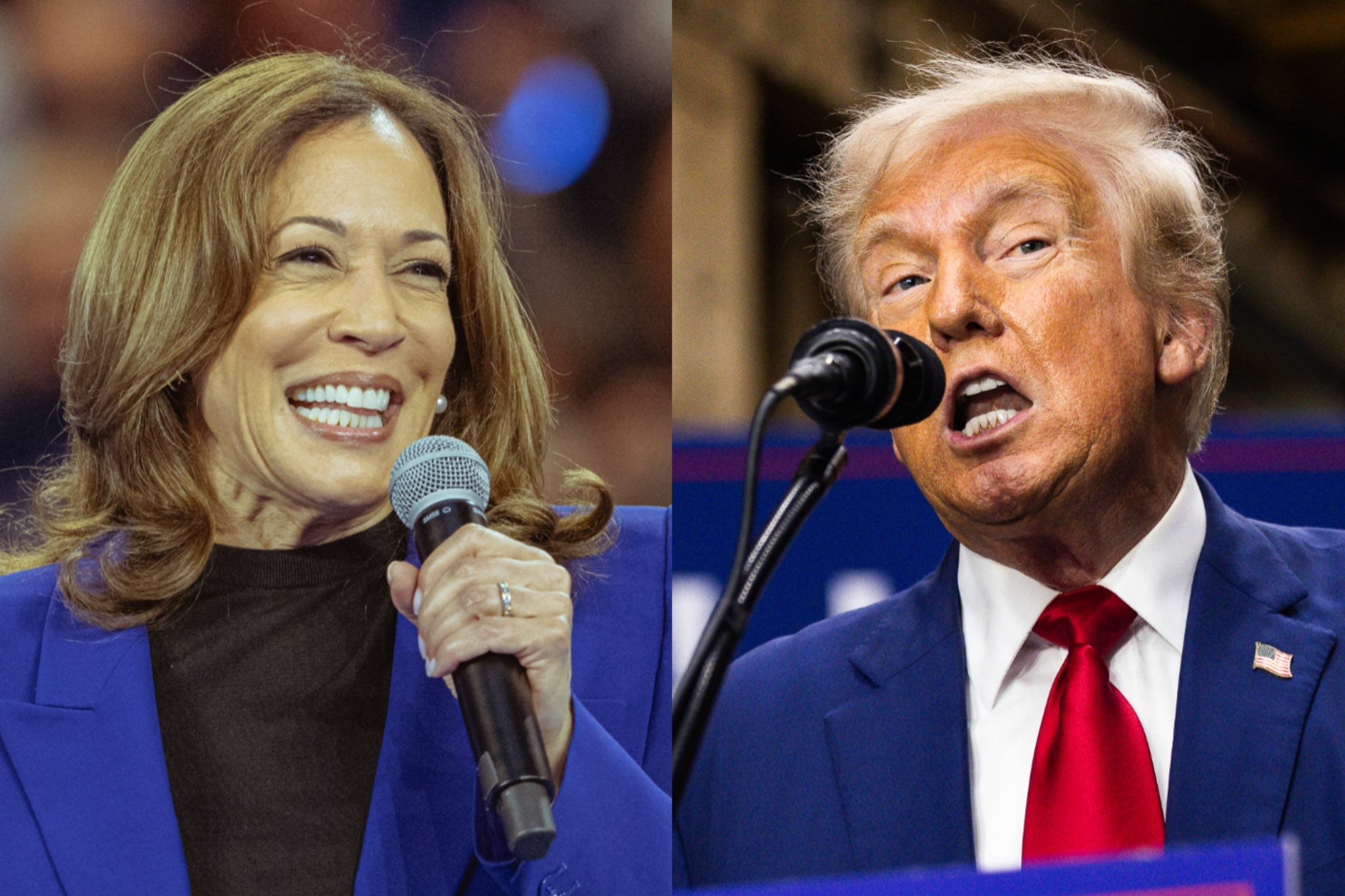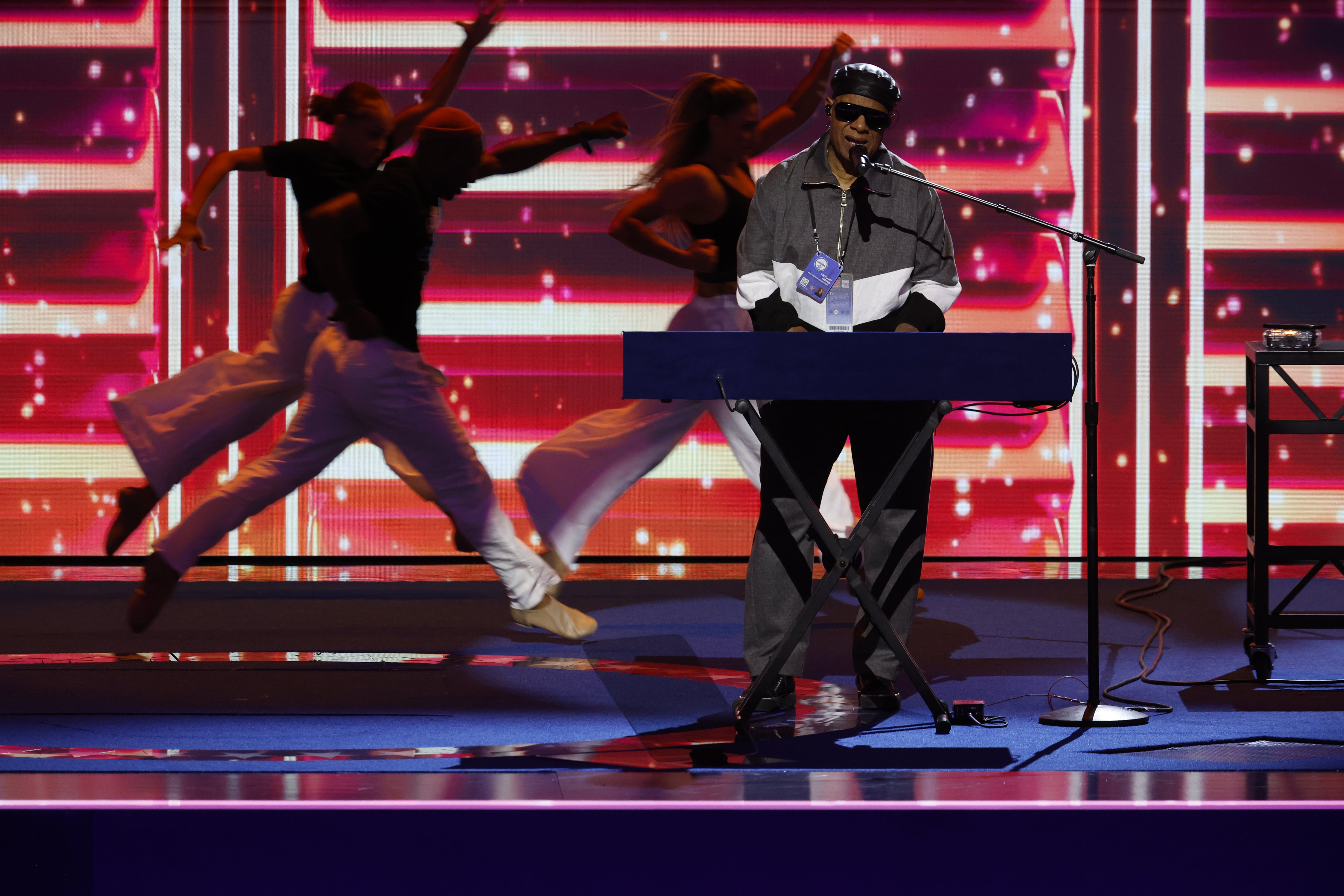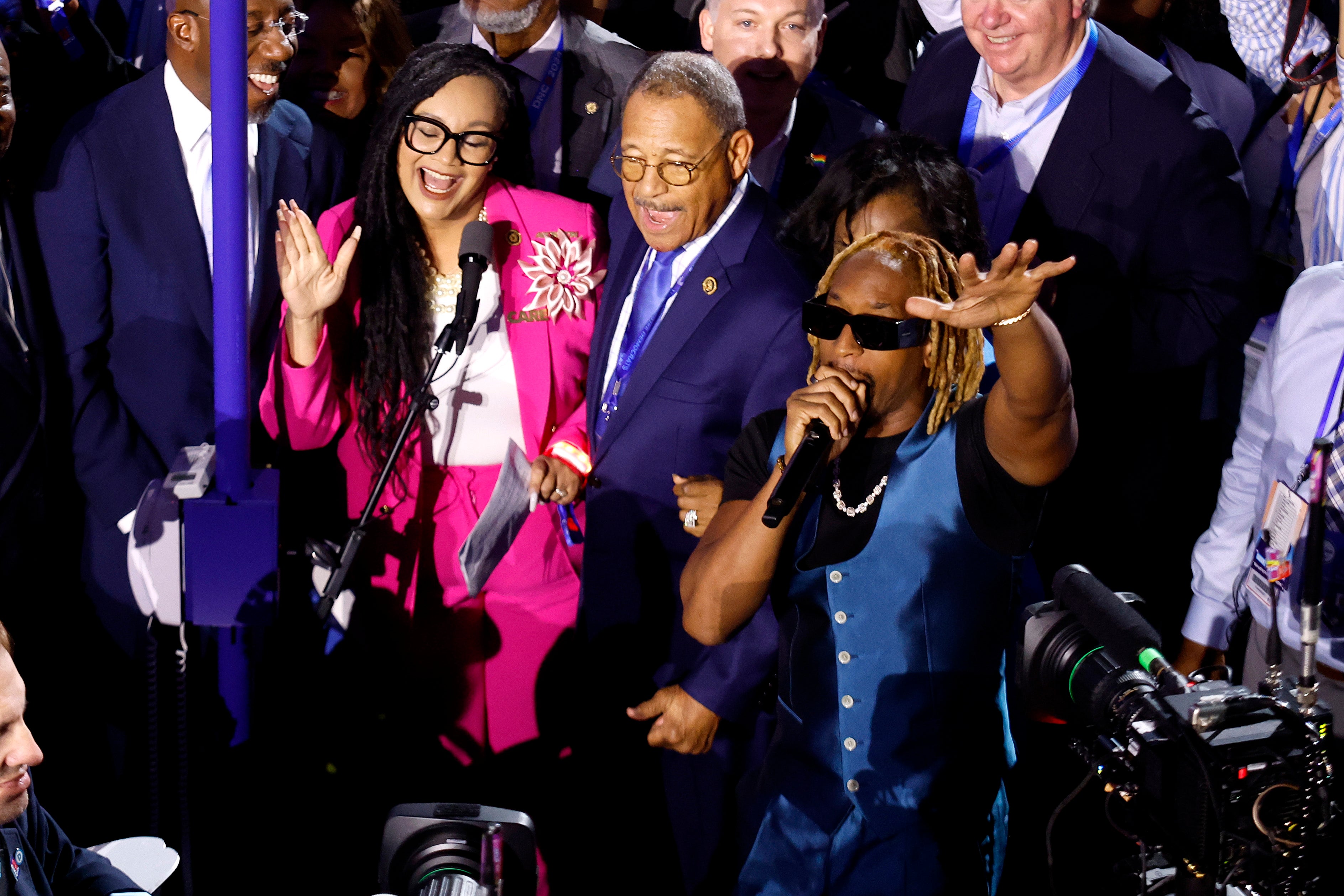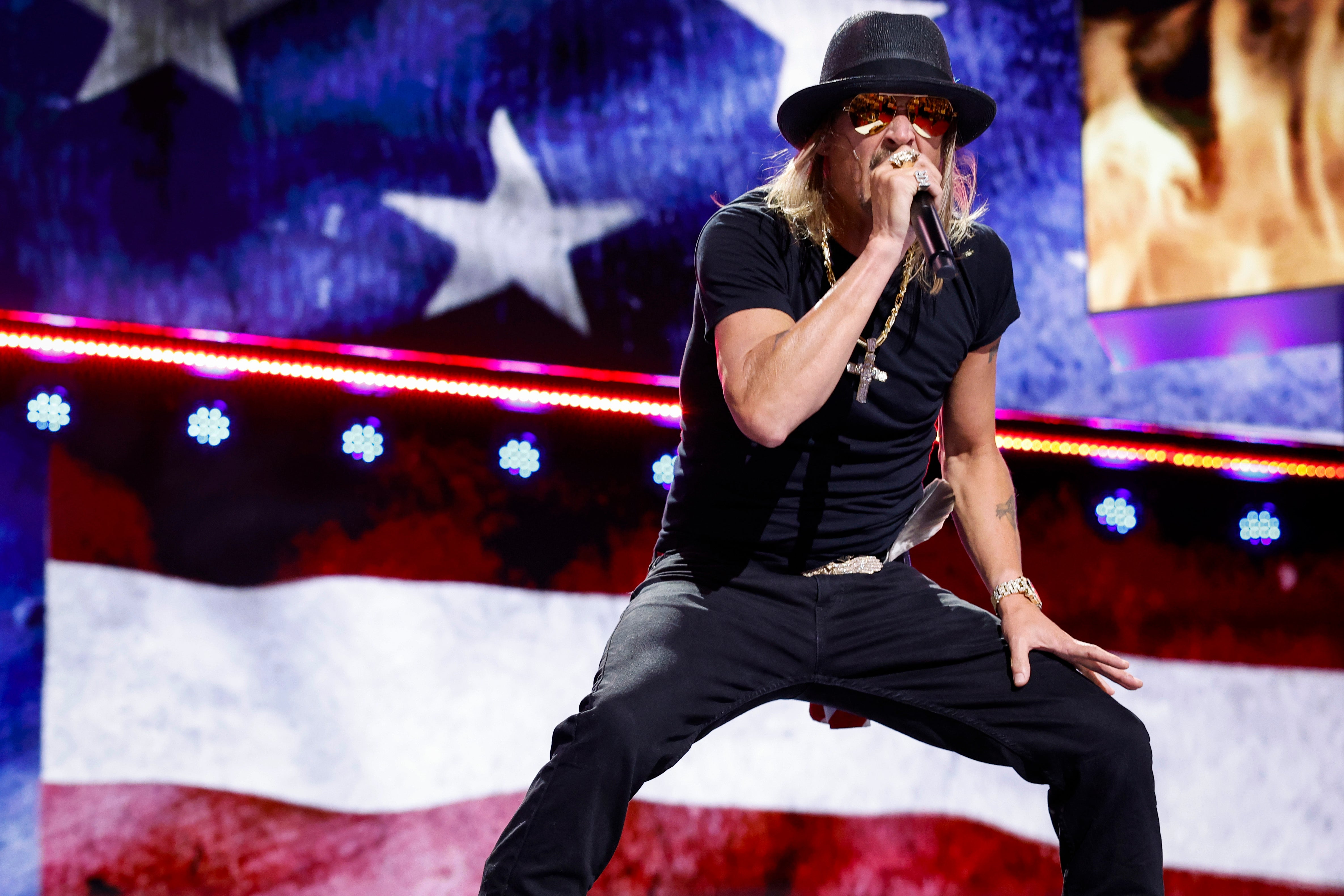What the RNC and DNC’s Very Different Soundtracks Say About the 2024 Election

Really support
independent journalism
Our mission is to provide unbiased, fact-based reporting that holds governments accountable and reveals the truth.
Whether it’s $5 or $50, every contribution counts.
Support us to deliver agenda-free journalism.

Last night, as Stevie Wonder belted out his 1972 funk classic “Higher Ground” and John Legend teamed up with Sheila E. for a Prince tribute honoring Minnesota native Tim Walz, one thing was clear: The Democratic National Convention in Chicago delivered the kind of musical lineup that any mid-sized festival organizer would be proud of.
Over the past three days, a host of musicians from every era and genre have taken to the United Center stage. Country star Mickey Guyton set the tone on opening night with a rousing rendition of his 2021 hit “All American,” an anthem that celebrates the “lights of New York,” as well as “the stars in the Texas sky” and a “hotel bible.” She was followed by artists including American singer-songwriter Jason Isbell, R&B legend Patti LaBelle, and rappers Common and Lil Jon, while singer-songwriter James Taylor was mercilessly silenced. Pink is also set to “get the party started” ahead of Kamala Harris’ speech tonight.

The idea of offering something for everyone may have given the event the feel of a deranged Spotify playlist, but it certainly contrasts with last month’s Republican National Convention. Milwaukee music fans had to settle for country singers Lee Greenwood and Chris Janson and the perhaps inevitable appearance of Kid Rock, who performed his 2000 single “American Bad Ass” before Donald Trump took the stage to accept the Republican nomination for president.
Before the conventions, some Republicans had urged the party to deliberately avoid focusing too much on celebrity appearances, knowing that musicians have, to paraphrase Stephen Colbert, a well-known liberal bent. Yet the stark difference between Republican and Democratic musical choices extends far beyond the artists who actually show up to perform.

At the RNC, the soundtrack tended to be older, whiter, and more male: think Grand Funk Railroad, Rick Springfield, and Steely Dan. When songs by black artists were played, it sparked its own controversy: Isaac Hayes’ estate is currently suing the Trump campaign over the allegedly unauthorized use of “Hold On, I’m Coming,” which Hayes wrote for Sam & Dave.
Similarly, Beyoncé threatened the Trump campaign with a cease-and-desist letter after it used her 2016 song “Freedom” in a since-deleted music video on social media. There have been no reports that the song was played at the RNC, but if it had been, it would have been a rare example of a modern pop song on the playlist: One Direction’s decade-old “What Makes You Beautiful” was the closest the RNC DJ got to taking the musical pulse. When Trump finally took the stage, it was to James Brown’s “It’s a Man’s Man’s Man’s World,” a typical and unsubtle projection of machismo.

At the DNC, the musical choices skewed toward the younger, more feminine side, with Taylor Swift, Gracie Abrams, Sabrina Carpenter, and Chappell Roan all making the cut. That’s not to say they completely shut out the dad rock vote, thanks in large part to Tim Walz, a notorious Warren Zevon fan. The vice presidential candidate received Neil Young’s express permission to use “Rockin’ in the Free World” as his DNC entrance theme, after the musician spent years sending Trump cease-and-desist letters demanding he stop using the song.

The contrasting musical choices of the two camps speak volumes about how both parties want to present themselves. Republicans are trying to project strength, courage and arrogance. The avoidance of contemporary pop speaks to the MAGAs’ desire to turn back the clock, to revel in the comforting melodies of the past rather than face the uncertainty of the future. Democrats have deliberately tried to create an eclectic playlist that reflects the broad church they seek to build, appealing to women and young voters while finding moments to celebrate the past. They, too, want to show strength: Both conventions found room on their playlists for Tom Petty’s “I Won’t Back Down.”
It’s unclear what song Kamala Harris will choose for her gala number, but savvy speculators are saying she’ll cover Beyoncé’s “Freedom.” As an anthem about black women’s power that alludes to the Black Lives Matter movement and America’s struggles against slavery, the song would be a fitting introduction to Harris’ big moment. Better yet, unlike Trump, she actually has the musician’s permission to use it.




:max_bytes(150000):strip_icc()/file1-4c6112e9b4804a36aca880d74814d075.jpg?w=390&resize=390,220&ssl=1)
